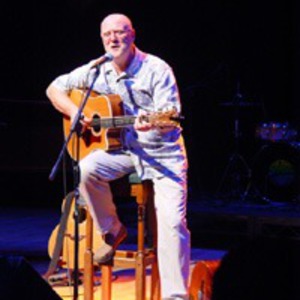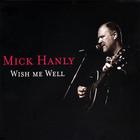Mick Hanly

- Genres:
- Country, International
- Meta styles:
- Celtic/British Isles, Traditional Country
- Styles:
- Celtic, Traditional Country
Mick Hanly is an Irish guitarist, singer, and songwriter, who specialises in interpretations of traditional Irish songs. Hanly was born and brought up in Limerick. He began playing the guitar while at primary school, giving his first performance at a school concert in 1958. While at secondary school he formed a band - The Astronauts - influenced by rock and roll, and especially by The Beatles.
Hanly was born and brought up in Limerick. He began playing the guitar while at primary school, giving his first performance at a school concert in 1958. While at secondary school he formed a band - The Astronauts - influenced by rock and roll, and especially by The Beatles.
In 1970 he startedworking in Galway City for the E.S.B. (Electricity Supply Board) and performing Woody Guthrie and Paul Simon material in his spare time in the Golden Key, a well known folk music venue in that city. His new-found interest in traditional music had begun a few years earlier when, at a concert in the west Clare seaside town of Kilkee, Hanly had heard Seán Ó Riada's group and also the playing of the legendary Clare uilleann piper Willie Clancy.
Though overwhelmed by Irish music, Hanly had a problem: how to adapt his guitar playing to the tradition? In 1972 he met Michael O' Domhnaill at the Swamp Folk club in Rathmines in Dublin; O' Domhnaill had solved just that problem for himself in his band Scara Brae. Hanly and O' Domhnaill got together as Monroe, and managed to find a spot supporting Planxty on their 1973 tour of Ireland. Monroe recorded an album, Folk Weave, for Polydor, now considered a seminal album which signposted the arrival of a new, and confident breed of contemporary Irish folk singer. Monroe split in 1975 when O' Domhnaill joined The Bothy Band and Hanly headed for Brittany and the life of an itinerant Irish folk troubadour.
He returned home to Ireland in 1977 to record two solo albums: A Kiss in the Morning Early and As I Went over Blackwater, with the help of such Irish traditional musicians as Donal Lunny, Andy Irvine, Matt Mooloy (now with The Chieftains), Paddy Glackin, Noel Hill, Peter Brown, and Declan Sinnott (Mary Black Band). Hanly started regularly Irish and European tours with Andy Irvine, who was forging ahead following the demise of the ground-breaking Planxty.
In 1981 Christy Moore left Moving Hearts, and Hanly replaced him as their lead singer. In 1985 the band split up for financial reasons, and Hanly was once again a solo artist. He had begun increasingly to perform his own songs, and was moving towards a role as a country singer-songwriter. His album Still Not Cured contained songs of lost love, broken relationships, and fresh beginnings and new hope. "Still Not Cured", "The Silence", and "Sorry I Said What I Said" became radio hits, and Hanly was soon back on the road with his new band, Rusty Old Halo.
His songs were also beginning to be covered by other artists, and in 1989 Mary Black included one of them - "Past the Point of Rescue" - on her album No Frontiers. Nashville country-producer Jim Rooney heard it and passed it on to Hal Ketchum, a new artist he was working with who was about to record his debut album. The song, the title track of Ketchum's album, was released in late 1991 as a single. A few months later "Past the Point of Rescue" became one of the most played and the most-requested songs on the 2,500 country stations across the U.S., sending the single and the album into the charts earlier this year.
Hanly continues to write, perform, and record.
- Sort by

Wish Me Well
- Year:
- 2007
- Tracks:
- 11
- Bitrate:
- 181 kbps